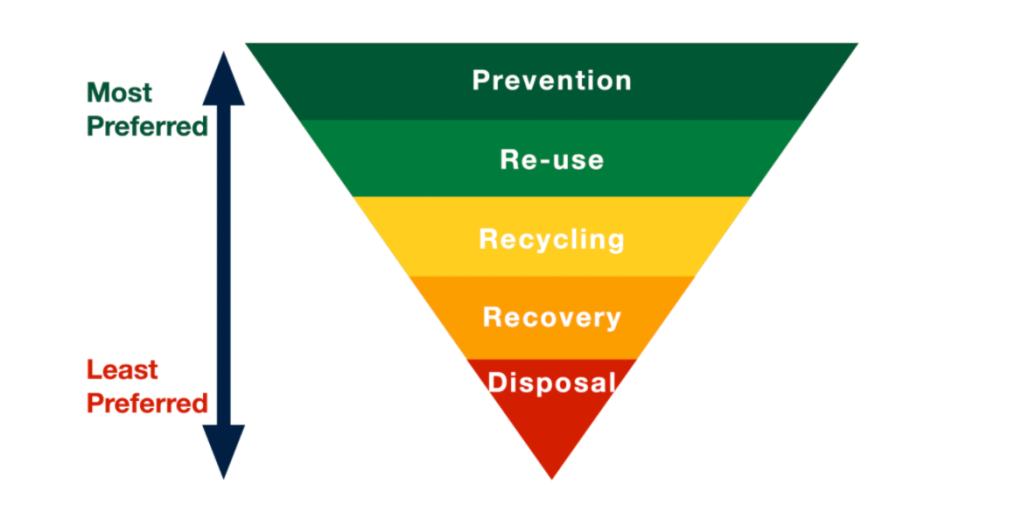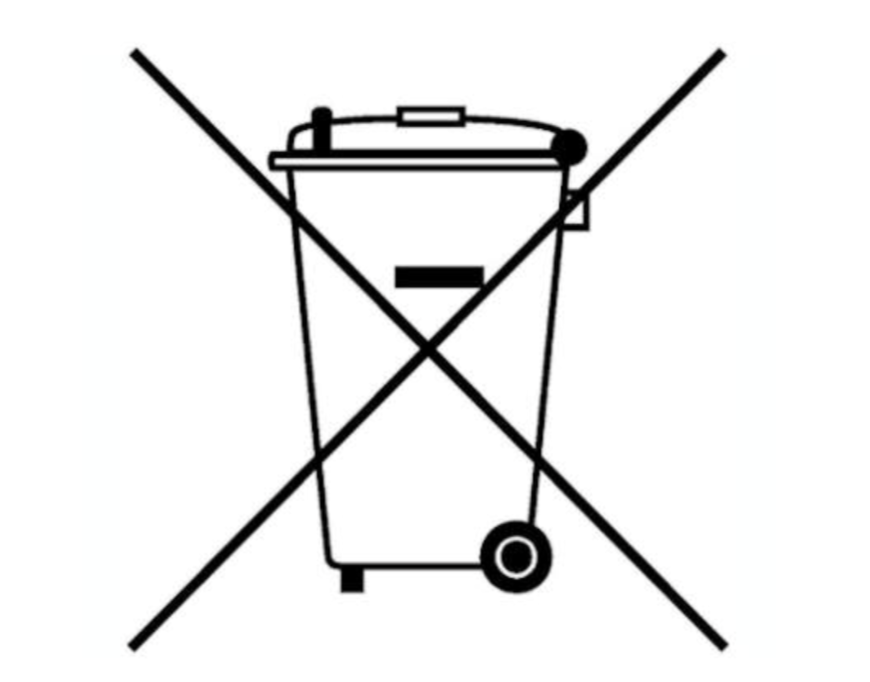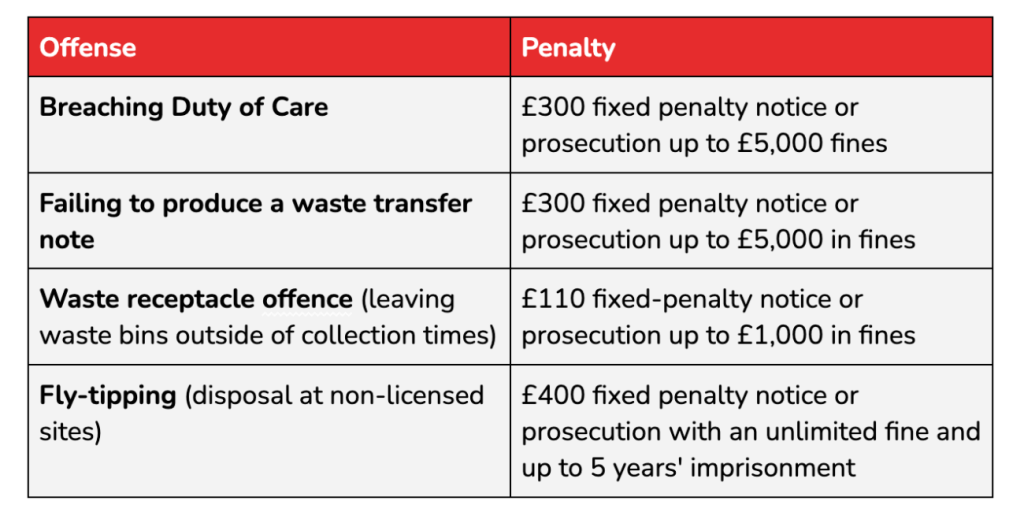Waste disposal regulations for small businesses
Table of Contents
As a business owner, you have a legal responsibility to safely store, transport and dispose of any waste your company produces. Whether it’s leftover food, rubble or shredded paper, you must take steps to handle your waste properly.
Fail to comply with the UK legislation for waste disposal, and you risk facing penalties or putting your reputation on the line.
If you need to know more about the waste disposal regulations for small businesses, you’ve come to the right place.
This guide will cover:
- Commercial waste Duty of Dare
- Waste disposal regulations for small businesses
- Penalties for failing to comply
Commercial waste and Duty of Dare
Every business in the UK has a legal obligation to contain waste products safely and dispose of them properly, called a Duty of Care. The legislation that demands this is called the Environmental Protection Act 1990.
So, what counts as waste products?
Basically, anything produced as waste material or rubbish from a commercial business, including by-products.
Here are some examples:
- Scrap computers and electrical equipment
- Furniture
- Used oils of any kind
- Packaging and post
- General waste
- Rubbish from food and drinks packaging
- Cigarette butts and smoking waste
- Flammable waste
- Recyclable materials
What are my responsibilities?
According to the Government website, UK’s waste disposal regulations for small businesses require you to:
- Sort and store waste safely and securely.
- Complete a waste transfer note for each waste load that leaves your premises.
- Check if your waste carrier is registered to dispose of it.
- Report waste carriers to Crimestoppers if they dispose of your waste illegally.
You must also keep your waste to a minimum by following the Prevent, Reuse, Recycle, and Recover waste management hierarchy. It looks like this:

Waste disposal regulations for small businesses
So, we’ve covered the basics. Now, let’s look closer at each Duty of Care part to give you a good idea of what you need to do.
Sorting and storing waste
When it comes to sorting and storing your waste, your Duty of Care requires you to:
- Store it in a secure place
- Use suitable containers that will stop waste escaping
- Label containers clearly with the type of waste they contain
- Use covers to stop waste from blowing away
- Use waterproof covers to protect from rain
- Store different types of waste separately
You’ll have extra responsibilities if you deal with unusual waste, but we’ll get into that later.
Waste transfer notes
Every time a licensed carrier takes waste from your business premises, you must fill in a legal document called a waste transfer note. This note details exactly what the waste is so it can be handled and disposed of correctly.
At a minimum, you must include:
- What the waste is and how much it weighs
- How it’s contained
- The place and date of transfer
Important note: You must keep a copy of your waste transfer note for at least two years. If an officer from your local council or Environment Asks to see it, you must be able to present it on demand.
It’s also your responsibility to make sure the carrier disposes your waste at a licensed disposal facility like a landfill site or recycling plant. Fly-tipping, where waste is dumped on non-licensed land, is a legal offence.
Dealing with unusual waste
If your business deals with unusual waste, like asbestos or electrical items, you’ll face stricter regulations for sorting, storing, transport and disposal.
Here are a couple of examples:
Animal by-products
This involves entire bodies or parts of animals or any material produced by animals (like manure) not intended for human consumption.
If you produce this type of waste (running a small farm, for example), your business must register with the Animal and Plant Health Agency.
You must also:
- Store it in separate air-tight containers
- Have it collected by a licenced carrier without undue delay
- Fill in a commercial note (except for manure)
A commercial note is like a waste transfer note and details:
- What the animal waste is
- The origin and quantity of the material
- Where and when it was collected
Like with waste transfer notes, you must also keep a copy of every commercial note for at least two years.
See also: Farm rules and regulations you need to know.
Hazardous waste
This is any material that is potentially dangerous or harmful to the environment or human health, including paint and pharmaceutical medicines.
If your business produces hazardous waste, you must be registered as a ‘Hazardous Waste Producer’.
You must also:
- Store the waste in clearly labelled and sealed containers
- Use containers made from materials chemically compatible with the waste it holds
- Place the container in a secondary container in case of spills or leaks
- Keep it away from non-hazardous waste
- Have it collected by an authorised business within 90 days of placing it in the container
- Fill in a consignment note
The consignment note should detail:
- Exactly what the waste is
- When and where it was collected
- Who collected it
You and the licensed carrier collecting the hazardous waste will fill in the consignment note. Then, you must keep the note for at least two years.
Waste electrical and electronic equipment (WEEE)
WEEE is any electrical item that can be plugged in or requires a battery, including fridges and smoke detectors.
As a business, you can store a maximum of 80 cubic metres of WEEE on your premises, or 50 cubic metres for fluorescent tubes or WEEE containing mercury.
- You can only store WEEE for three months
- Only a registered waste carrier can dispose of it
- You must keep it in waterproof containers marked with the symbol below

Penalties for failing to comply
If you fail to comply with the waste disposal regulations for small businesses, you can receive serious penalties that could potentially bankrupt your company.
This table breaks it down for you:

Minimise financial waste with Countingup
Now that you know about storing, transporting and disposing of commercial waste, why not look at a way to keep your finances waste-free as well?
Countingup is the business current account and accounting software in one app. It automates time-consuming bookkeeping admin for thousands of self-employed people across the UK.
The app is jam-packed with features designed to make it easy to track and manage all your financial activities –– all with a few taps on your phone.
This way, you know exactly where your money comes and goes, so you can make sure there are no spills.
Receive actionable business tips weekly
By submitting this form, you confirm that you are 16 years of age or over and that you have read and agree to our Privacy Policy. You can unsubscribe at any time.




